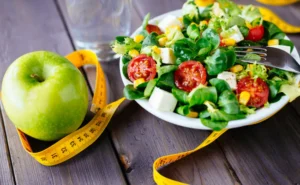Beginners may find it challenging to find effective strategies for losing weight. Many attempt extreme diets that often prove futile. To successfully lose weight, the key lies in eating healthful food, exercising regularly and forgoing alcohol consumption.
An engaging blog post begins with an opening that grabs readers’ attention and sets the scene for what lies ahead in terms of writing the rest of the piece, whether through quotes, facts or short stories.
How To Lose Weight Without Extreme Dieting?
People everywhere want to find sustainable and healthy ways of losing weight, as this will create lasting and healthy eating habits that they can keep for life. Although extreme diets may lead to initial weight loss, they often result in malnutrition or other serious side effects such as low blood sugar levels, dehydration and muscle breakdown. Therefore, the ideal approach to losing weight would be eating nutrient-rich food and exercising regularly: this way your overall health will benefit as you form lasting healthy eating habits that you can carry into adulthood.
1. Eat Healthy Foods
Maintaining a nutritious diet is the cornerstone of weight loss. A nutritious diet includes foods that are low in sugars and sodium, high in fiber and protein content, as well as plenty of fresh produce such as vegetables and fruit. Preparing meals at home often contains less added fat compared with dining out; you’ll also gain exposure to new ingredients and cuisines!
Consume food from each of the 5 food groups every day in their recommended amounts; for instance, for an easy and balanced breakfast you could try something like wholemeal toast with low-sugar cereal or fruit as part of a balanced breakfast option.
Skip foods high in kilojoules like cakes, biscuits, and pies and choose lower kilojoule foods like whole grain bread and crackers with higher fibre, lean meats and fish, vegetables and fruit salads instead.
2. Exercise Regularly
People looking to lose weight must expend more energy than they consume over a sustained period. One effective method of doing this is exercise, whether that’s as simple as a daily walk or more vigorous activities like running, swimming and cycling. Regular physical activity also reduces risk for obesity while improving overall health.
To maximize benefits, aim to engage in at least 150 minutes of moderate intensity exercise (or equivalent combinations) per week, such as walking uphill or jogging around your block – this activity can even be broken up into short sessions throughout the day!
Regular exercise can not only help you to shed pounds, but can also decrease the risks of heart disease and stroke, depression and anxiety disorders, diabetes and certain cancers. Furthermore, exercise strengthens immune systems while improving sleep. So why wait any longer? Get moving!
3. Reduce Your Calorie Intake
Many calorie-counting apps and websites can help you estimate how many calories to consume on a daily basis to lose weight, however these calculators should only serve as guides, as there may be many factors affecting calorie consumption that are out of their control, such as age, gender, activity levels etc. For more tailored advice regarding your calorie consumption in order to gain, maintain or lose weight while meeting nutritional needs, always seek professional guidance from a registered dietitian or physician.
To successfully shed excess pounds, creating a calorie deficit by either eating less or exercising more is key to reaching weight loss. Eating less can mean ditching high-caloric food like sweets and processed snacks in favor of healthier options; eating smaller meals more mindfully also help.
4. Avoid Alcohol
Alcohol can add empty calories to your diet and interfere with fat-burning. Furthermore, drinking can increase appetite and cause you to overeat than usual; additionally it may lower inhibitions and cause unhealthy food choices to be made.
A 12-ounce can of beer contains 155 calories while one glass of wine has 125. When added with mixers like soda, fruit juice or syrup, however, this calorie count skyrockets.
Though you shouldn’t stop drinking entirely, try limiting how much you drink. By sipping water or seltzer before and after enjoying alcoholic beverages, you can help regulate how much is consumed. Another tip for staying hydrated while enjoying your favorite drinks is sipping slowly rather than gulping them down – this way your body stays hydrated while staying hydrated! You could even swap high-calorie mixers out for seltzer with fresh fruit to further lower calorie count.
5. Stay Active
Staying healthy requires being physically active most, if not all, days of the week. Most individuals should incorporate moderate and vigorous intensity exercise along with muscle strengthening activities into their routines.
Sitting still for extended periods, such as watching television, has been linked with weight gain and an increased risk of disease. To stay active and increase physical activity levels in your daily life, find activities you enjoy that fit seamlessly into daily activities – walking to shops or playing with children are great examples.
Reach a weekly total of 150 minutes of moderate intensity exercise, whether in short sessions of 30 minutes five times per week or 22 minutes daily. Incorporating muscle-strengthening activities using your own bodyweight at least twice each week should also be part of this goal.




